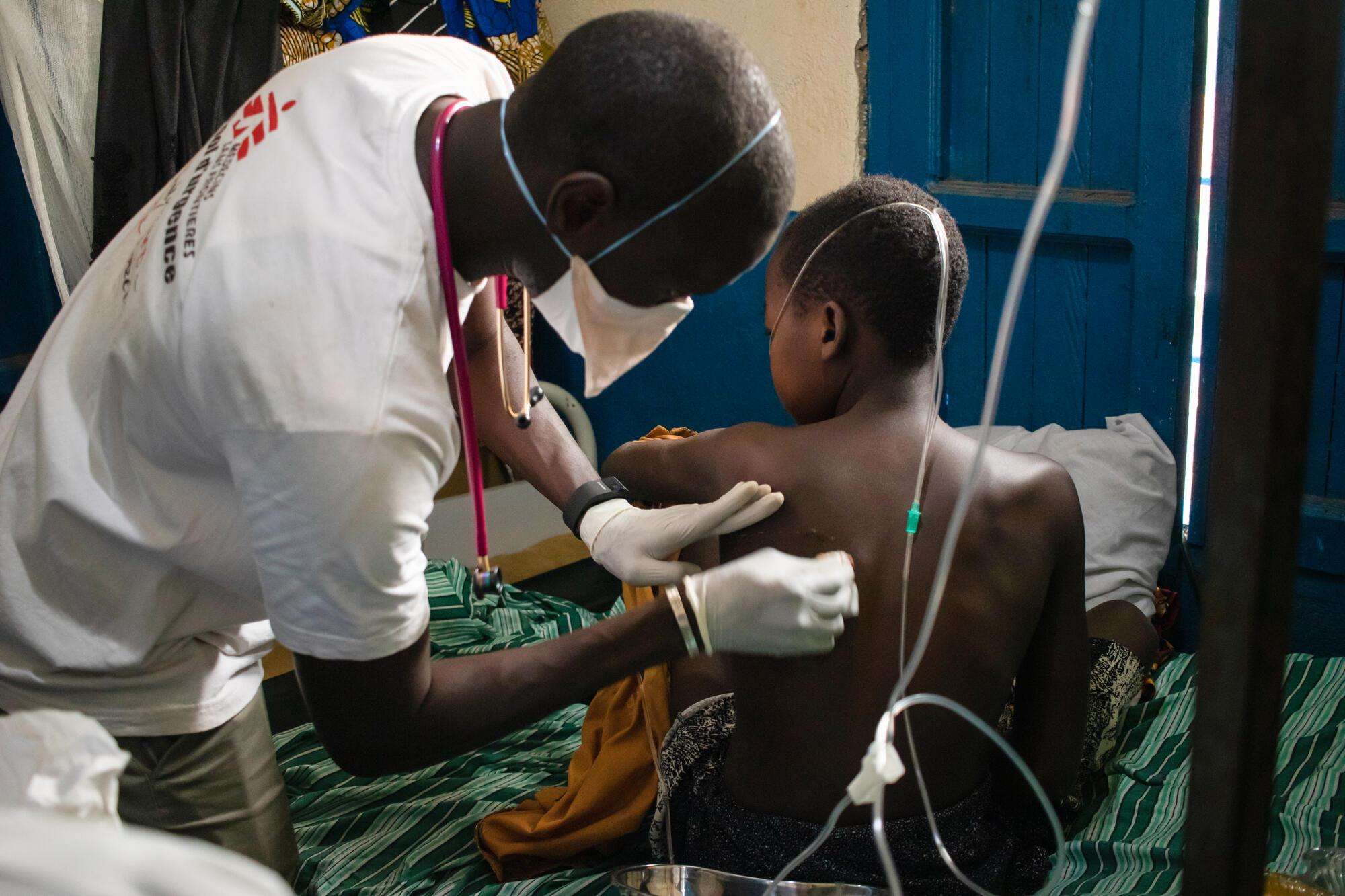NEW YORK/KINSHASA, MARCH 21, 2022—Doctors Without Borders/Médecins Sans Frontières (MSF) has announced that it will close its projects in the towns of Nizi and Bambu in the Ituri province of the Democratic Republic of Congo (DRC) due to a lack of security guarantees from all parties to the ongoing conflict. This decision comes four months after a convoy of vehicles belonging to the international medical humanitarian organization came under fire by unidentified armed men.
Two MSF staff were severely wounded in the attack, which took place on October 28, 2021 on the road between Kobu and Bambu in Ituri province’s Djugu territory. Following the incident, MSF called on all parties to the conflict to condemn the attack and to respect international humanitarian law and protect medical facilities, health workers, ambulances, patients, and the wounded. MSF also asked authorities to launch an investigation into the incident, but this has not happened.
“We have been left with little choice but to close our projects,” said Olivier Maizoué, MSF program manager for DRC, where people have little access to health care. “The risks are simply too high, and, therefore, it is impossible for MSF to return to those areas with confidence. We regret this decision very much since this will have dire consequences for a population with acute needs. But we cannot risk lives to save lives.”
MSF will continue to provide medical and humanitarian aid elsewhere in Ituri province, including Drodro and Angumu, and will continue to support local health authorities in Nizi and Bambu by donating medicines and medical supplies to cover the months ahead. “We are, however, painfully aware that this one-off donation will not compensate for our departure,” Maizoué said.
All parties to the conflict are supposed to facilitate unimpeded access of humanitarian aid for civilians in need, as well as respect and protect humanitarian personnel. MSF, therefore, maintains its request for an investigation to be carried out by the authorities and calls for all warring parties as well as all people in a position of influence to work on ensuring an environment that allows people to receive the aid they so desperately need.
The attack in October was not the only recent incident to impact MSF teams in the northeastern province of Ituri. In June 2021, the main referral hospital in Boga town, which was supported by MSF, was severely damaged during fighting in the town. At least 12 people lost their lives, while several buildings, including the intensive care unit, were burnt down, and the hospital’s pharmacy and stocks of medical supplies were looted.
“We are concerned by the numerous attacks and looting of health facilities, and we are deeply disturbed by the climate of impunity that reigns today in this part of DRC,” said Jérome Alin, MSF head of mission. “We know that impunity fuels yet more violence.”
MSF has been working in DRC for more than 40 years and currently runs projects in 20 of the country's 26 provinces, providing medical care to victims of conflict and violence, to people displaced from their homes, and to people suffering from disease epidemics including cholera, measles, and HIV. MSF teams started working in Nizi and Bambu in June 2018, providing medical services to approximately 471,000 people affected by years of conflict, with a focus on pediatric health care and ensuring proper water and sanitation for displaced people in the area.
Democratic Republic of Congo: MSF forced to close medical projects in Nizi and Bambu

Democratic Republic of Congo 2020 © Solen Mourlon/MSF
